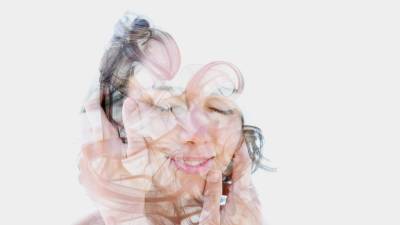Hypnosis for Sleep Disorders
Sleep Soundly Again
You are dead tired, fall into bed and no sooner have you closed your eyes than you are asleep. Wonderful! If only they would not wake up again an hour or two. If only you didn't toss and turn in bed for hours every night, falling asleep and waking up again only to finally fall into the sleep you've been longing for just before the alarm clock rings. If you know this, then hypnosis may be the right place for you to start.

Image: Hypnosis for Sleep Disorders - Sleep Soundly Again
Sleep disorders symptoms
How to Recognize Sleep Problems and Insomnia
When too little or poor sleep takes place over a longer period of time, those affected often describe fatigue that extends throughout the day. Those affected often feel exhausted, fatigued and depressed - consciously chosen rest periods throughout the day do little or nothing to improve fatigue. While the vast majority of people are familiar with the well-known midday slump, this form of fatigue also manifests itself after less sumptuous meals or only normal and less strenuous activities in everyday life. Daytime fatigue, daytime sleepiness, rapid fatigability may have an underlying psychological cause.
Sleep disorders and sleep problems are very stressful for those affected - the recovery in sleep is missing, and then in the day comes the fatigue. Sleep disorders can be difficulty falling asleep and staying asleep, early morning awakenings and nightmares (parasomnias) and can manifest themselves in very different ways to those affected. There are people who have difficulty falling asleep or who have difficulty sleeping through the night. There are also people who frequently wake up early in the morning and then can no longer fall asleep.
Sleep disorders show up in people through different symptoms and reactions on a physical and psychological level:
Sleep disorders and sleep problems are very stressful for those affected - the recovery in sleep is missing, and then in the day comes the fatigue. Sleep disorders can be difficulty falling asleep and staying asleep, early morning awakenings and nightmares (parasomnias) and can manifest themselves in very different ways to those affected. There are people who have difficulty falling asleep or who have difficulty sleeping through the night. There are also people who frequently wake up early in the morning and then can no longer fall asleep.
Sleep disorders show up in people through different symptoms and reactions on a physical and psychological level:
Physical Symptoms
Sleep disorders refer to difficulty falling asleep and staying asleep. Affected persons also frequently report early morning awakenings, sometimes followed by a low mood in the morning hours. Nightmares (parasomnias) may also occur repeatedly. There are usually physical symptoms such as restlessness or tension in the body; sufferers often describe being very tired on the one hand, but on the other hand, not being able to find rest and tossing and turning in bed hour after hour.
Psychological Symptoms
Sleep disorders often manifest themselves in conjunction with anxiety and insecurity: many sufferers have already tried out all the usual sleep tips and still find themselves helpless in sleepless nights time and again. While some are kept awake by worries or thoughts, others cannot explain the sleeplessness. A vicious cycle begins, with fears starting during the day and thoughts circling about the next hopefully good night. The fears are often intensified by demanding days and challenges in everyday life and the fear of not being able to meet the demands with less sleep in the long run.
Hypnosis against insomnia and poor sleep
Sleep disorders or problems are described by most people by a lack of sleep at night. Most describe having slept too little, slept badly or had bad dreams. In between there are many more forms of sleep disorders, but until now there is no authoritative description. Good and bad sleep are perceived individually, but clearly show their consequences: a high level of suffering, heavy stress in everyday life and performance, up to worries about the next bad night, which leads to a negative cycle and can be difficult to break by those affected themselves and alone.
Sleep disorders self test
Do I suffer from sleep problems?
The following questions may be the first clues as to whether you suffer from sleep disorders and poor sleep:
-
1
Do you experience nights of insomnia, nights of nightmares, or poor, unsatisfying sleep? -
2
Do you experience any of the following symptoms: physical tension, restlessness, circling thoughts? -
3
Are you afraid that you will again sleep too little and thus not be able to fulfill your life's tasks? -
4
Do you have the impression that your thoughts are already circling around sleeping at night during the day? -
5
Do you feel exhausted during the day and find it difficult to concentrate due to lack of sleep?
If you can answer yes to any of these questions and feel restricted in your everyday life and living, you should seek medical or therapeutic advice. You may have a sleep disorder. Please note that questions are always asked broadly, so it is possible that people who are not affected by a sleep disorder may also receive a positive result. Not everyone who has little sleep, bad sleep or dreams from time to time suffers from a sleep disorder.
Sleep disorders facts
Where and how do sleep problems occur?
Sleep disorders are among the most common complaints and are experienced very differently from person to person. The following areas can be affected:
- Difficulty falling asleep
- Trouble sleeping through the night
- Early morning awakenings
- Nightmares (parasomnias)
- Chronic fatigue, exhaustion
Sleep disorders in Germany
With the help of the following sources, we can say: 21.1% of the surveyed working people between 35 and 65 years of age indicate in a telephone survey that they were more frequently affected by sleep disorders (problems falling asleep, sleeping through) in the last 3 months. 59% of 1,000 working people receive their diagnosis as outpatients in 2017, 18% people have a diagnosis of falling asleep and sleeping through problems in Germany Age between 15 and 65 years, also in 2017.
21 %
state that they have experienced sleep disturbances (problems falling asleep or sleeping through the night) more frequently in the last 3 months.
state that they have experienced sleep disturbances (problems falling asleep or sleeping through the night) more frequently in the last 3 months.
58.55 %
Sleep disorders overall with outpatient diagnosis.
Sleep disorders overall with outpatient diagnosis.
17.6 %
Persons with diagnoses of sleep onset and sleep maintenance disorders in Germany aged 21-65 years (cases per 1,000 persons).
Persons with diagnoses of sleep onset and sleep maintenance disorders in Germany aged 21-65 years (cases per 1,000 persons).
Source Statista:
Own illustration, data source: https://de.statista.com/ Question/title: survey on the frequency of occurrence of sleep disorders (problems falling asleep, staying asleep) in the last three months, source DAK, survey by DAK, name of survey DAK - Gesundheitsreport 2010, published by DAK, reference of origin DAK - Gesundheitsreport 2010, page 46, publication date, February 2010, accessed on 04.10.2020
Own representation, data source: https://de.statista.com/ question/title: Frequency of sleep disorders in Germany by diagnosis in 2017, Source BARMER, Survey by BARMER, Published by BARMER, Reference to origin BARMER - Gesundheitsreport 2019, Page 99f., Publication date, October 2019, accessed 04.10.2020
Own representation, data source: https://de.statista.com/ Question/title: Persons with diagnoses of sleep onset and sleep maintenance disorders in Germany by gender and age 2017, Source BARMER, Survey by BARMER, Published by BARMER, Reference to source, BARMER - Gesundheitsreport 2019, Page 108, Publication date, October 2019, accessed 04.10.2020
Own illustration, data source: https://de.statista.com/ Question/title: survey on the frequency of occurrence of sleep disorders (problems falling asleep, staying asleep) in the last three months, source DAK, survey by DAK, name of survey DAK - Gesundheitsreport 2010, published by DAK, reference of origin DAK - Gesundheitsreport 2010, page 46, publication date, February 2010, accessed on 04.10.2020
Own representation, data source: https://de.statista.com/ question/title: Frequency of sleep disorders in Germany by diagnosis in 2017, Source BARMER, Survey by BARMER, Published by BARMER, Reference to origin BARMER - Gesundheitsreport 2019, Page 99f., Publication date, October 2019, accessed 04.10.2020
Own representation, data source: https://de.statista.com/ Question/title: Persons with diagnoses of sleep onset and sleep maintenance disorders in Germany by gender and age 2017, Source BARMER, Survey by BARMER, Published by BARMER, Reference to source, BARMER - Gesundheitsreport 2019, Page 108, Publication date, October 2019, accessed 04.10.2020
Sleep disorders causes
What is behind insomnia and poor sleep?
Sleep disorders often accompany other physical or mental illnesses or are signs of illness. For example, early morning awakenings and sleep disturbances are often found in depressive disorders. For this reason, an exact diagnosis is important in order to find out whether the sleep disorder is superficial in itself or whether there is another illness behind it that needs to be treated. Since we humans are different and would also describe our sleep individually and subjectively as good or bad, there is no generally valid information about the duration of sleep. Rather, sleep is perceived individually and, above all, subjectively by each individual affected.
Causes of poor sleep
There are primary sleep disorders and secondary sleep disorders. Primary sleep disorders are characterized by the fact that no causes can be found. Both physical not and emotional or psychological not. Primary sleep disorders are caused by professional or private stress, also often unfavorable sleep conditions are involved in insomnia, which affects sleep hygiene and well-being. Secondary sleep disorders have a physical, i.e. organic cause or are due to psychological causes such as mental illness, organic more precisely neurological diseases, medication or use of legal or illegal drugs.
- Stress, increased stress hormone cortisol
- Nervous activity and tension in the body despite sleep
- Worry: professional anger or private problems and challenges
- Taking medication
- Use of certain stimulants and drugs
- Hormonal changes such as menopause
- Sleep disturbances due to depression
- Disturbed sleep-wake rhythm, imbalance
- Travel fever, excitement before important dates and events
- Physical illnesses, pain
Sleep disorders consequences
What Consequences Can Insomnia Have?
The longer sleep disorders persist and remain untreated, the greater the suffering of those affected. Confidence and hope diminish, sufferers feel helplessly at the mercy of others, everyday life becomes increasingly difficult for sufferers to manage, and the fear of the next sleepless night often increases: How am I supposed to get through the next day with so little sleep? Will I get at least a little sleep tonight? Existential fears are not entirely unfounded. Because with increasing sleeplessness generally the concentration and load ability sinks. Involuntary sleep deprivation makes sufferers more prone to mistakes and accidents in everyday life.
Summarize the consequences of a sleep disorder as follows:
Summarize the consequences of a sleep disorder as follows:
- Insufficient sleep duration or quality impairs the performance and concentration of those affected during the day.
- High levels of suffering can manifest themselves psychosocially, somatically and economically.
- Difficulty concentrating and a drop in performance can lead to problems at work and even to loss of employment.
- Imbalance and strong feelings of being overwhelmed in everyday life.
- Increased risk of physical illness. Too little sleep impairs the immune system.
- Increased risk of accidents in everyday life due to sleep deprivation and overtiredness.
- Increased risk of mental disorders.
- Increased risk from "self-therapy or self-medication" due to sleep aid or sedative addiction and alcohol consumption.
Sleep disorders and secondary conditions
The most common after-effects among people who report persistently poor sleep are increased use of sleeping pills or sedative addiction as an attempt to self-medicate and find peace of mind. But this is a vicious cycle that can threaten to derail, as habituation often occurs and sufferers, then reach for more. But even if sleep disorders do not lead to drug dependency, they pose major challenges to those affected - psychologically, sleep disorders are manifested by negative thoughts and combined with worries to the point of depression, and physically by a variety of possible secondary conditions, ranging from cardiovascular diseases to a weakened immune system.
Chronic fatigue due to sleep disorders
Sleep problems can lead to chronic fatigue and exhaustion
When too little or poor sleep takes place over a longer period of time, those affected often describe fatigue that extends throughout the day. Those affected often feel exhausted, fatigued and depressed - consciously chosen rest periods throughout the day do little or nothing to improve fatigue. While the vast majority of people are familiar with the well-known midday slump, this form of fatigue also manifests itself after less sumptuous meals or only normal and less strenuous activities in everyday life. Daytime tiredness, daytime sleepiness, rapid fatigability can have a psychological cause. Hypnosis can reveal and work on the causes and helps to get to the root causes. Working with the subconscious mind facilitates access to inner resources and enables unconscious solution processes to be set in motion, which lead to a change in the condition and more and more deepen sleep again.
Sleep disorders hypnosis treatment
Sleep soundly again with hypnosis: Experience deep rest and sleep through the night
Hypnos is the god of sleep from Greek mythology, who could put people and gods into deep sleep. From this was derived the term hypnosis, so that sleep disorders and sleep problems could be called the royal class of hypnosis. Hypnosis for sleep improvement is about getting into a sleep-like state where you can let go and relax completely. This fact makes the therapy of sleep disorders with hypnosis very effective. Due to the deep relaxation during the hypno-therapeutic trance state, the cycle of insomnia can be ended. In addition, there are therapeutic interventions that can holistically and effectively deal with and end the issue of insomnia. Self-help techniques are learned in the form of self-hypnosis and allow to enter into a peaceful and healthy sleep even at night, so that the recovery through sleep is also reflected in everyday life.
Hypnosis uncovers the source of your sleep problems
Hypnosis can reveal and work on the causes and helps to get to the root causes. Working with the subconscious thereby facilitates access to inner resources and enables unconscious solution processes to be set in motion, which lead to a change in the state of affairs and make sleep more and more profound again.
Overcome sleep problems with hypnosis
Already after the first hypnosis session you will be much more relaxed. You may still be awake during the night, but with the help of the hypnosis techniques you learn right at the beginning, you will be able to fall asleep again very quickly. In the following sessions you will get deeper and deeper into contact with your subconscious. Now it's time to find the hidden causes of your problems sleeping through the night. Often it is fears and worries that we are not even aware of when we are awake, but which prevent us from sleeping at night. In hypnosis we have access to these inner demons and more. The subconscious mind also has the solutions to our problems ready. You will find these solutions in hypnosis. This is how hypnosis Berlin helps you with sleep through problems.
More Information
Hypnosis Appointment Booking
The first hypnosis session usually lasts 120 minutes and includes getting to know each other, a detailed anamnesis and your first hypnosis.
After booking an appointment in the online calendar, you will receive detailed information about your hypnosis session by email and will receive the hypnosis e-book free of charge when you book the first session. Follow-up appointments usually last 90 - 120 minutes, depending on the current situation and the resulting needs.
You can find detailed information about the prices under Hypnosis Prices.
After booking an appointment in the online calendar, you will receive detailed information about your hypnosis session by email and will receive the hypnosis e-book free of charge when you book the first session. Follow-up appointments usually last 90 - 120 minutes, depending on the current situation and the resulting needs.
You can find detailed information about the prices under Hypnosis Prices.
Smaller topics and issues can sometimes be solved in one session. In particular, hypnosis for smoking cessation takes place in one intensive session. More complex issues that accompany people longer are treated in four sessions on average. Hypnotherapy is to be understood as a short therapy. There are also exceptions where I support clients over several years at their express request.
Usually clients come for a follow-up appointment at an interval of 1 to 4 weeks. I have had very good experiences with a session interval of 1 to 2 weeks. I would like to emphasize here that in my experience this depends on the topic and the client.
Under the following link you can select and book your appointment yourself in the online calendar: Make an Appointment.
You will receive an invoice for each session. This does NOT show any fee codes of the GebüH and does not contain any diagnoses. The session is to be paid privately at the end of the session in cash or with EC card. The practice does NOT bill public and private insurances.
You can find more questions and answers in the
Hypnosis FAQ section - frequently asked questions about hypnosis.
Frequently asked Questions
How can I tell if I was in trance?
Many people who have experienced hypnosis and trance describe the state as one that is similar to the feeling just be...
What are the advantages of Hypnosis Berlin?
These are the advantages of hypnotherapy at our Hypnosis Berlin Practice
The advantages of hypnosis are numerous. T...
How effective is hypnosis and are the effects long-lasting?
Is hypnosis effective in the long term or do the old behavior patterns come back?
Hypnosis is a highly effective tre...
How fast does hypnosis show its effects?
How quickly does hypnosis show an effect?
Hypnosis refers to communicating with the unconscious parts of the human b...
Similar Hypnosis Topics:
You can find more information about hypnosis and our hypnotherapy sessions in the FAQ section and more specifics about the hypnotherapy procedure here.
 Children
Children Phobias
Phobias Physical
Physical Profession
Profession Psychosomatic
Psychosomatic Relationship
Relationship Self-Growth
Self-Growth Stress
Stress





